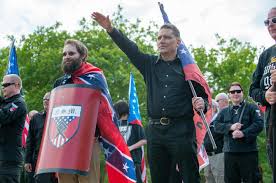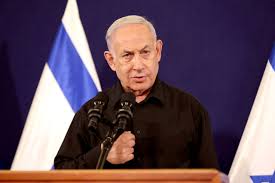SAO PAULO (axios): Black Lives Matter demonstrations popping up from Brazil to Mexico show how influential Black American social movements have been in Latin America — and how movements there also have shaped activism in the U.S.
The big picture: Social justice advocacy in the Americas has always motivated people across borders and languages, though the extent of that influence has often been ignored or overlooked.
Driving the news: In Brazil, the Latin American country with the largest Black population, activists have held anti-racism protests in São Paulo, Rio de Janeiro and other cities since 2020.
- They have accused President Jair Bolsonaro of genocide through police violence, per the BBC, with some protest signs reading “Don’t kill me, kill racism” and “Black people want to live.”
Mexicans earlier this year protested the death of 36-year-old Victoria Salazar, a Salvadoran immigrant, who died from a broken neck while in police custody. A police officer pinned her to the ground — reminiscent of George Floyd’s death.
- In 2020, Mexicans protested the racism against Tijuana’s Black migrant community, including the death of a Haitian migrant at the hands of law enforcement. His last words were, “Asma, no puedo respirar,” which translates to “Asthma, I can’t breathe.” Police have still not released his name.
In Colombia, Black Lives Matter protests erupted in Bogotá, calling attention to the death of Anderson Arboleda, a Black Colombian.
- Police allegedly hit Arboleda in the head with a bat for not complying with coronavirus rules. He later died.
The intrigue: Inspiration goes both ways. Activists in Latin America also have influenced movements in the U.S.
- Some Black Lives Matter protesters last summer used the phrase, “They tried to bury us. They didn’t know we were seeds.”
- That’s a Mexican saying popularized by the Ayotzinapa case — 43 students from the Ayotzinapa Rural Teachers’ College who were allegedly abducted by police and then disappeared in Iguala, Mexico, in 2014.
The 1959 Cuban Revolution served as an inspiration for the Chicano Movement in the U.S.
- Activists and mural artists regularly used the image of Che Guevera in protests, to the dismay of Cubans whose families whose loved ones were imprisoned or killed as anti-revolutionaries.
The movement to bring attention to missing and murdered Indigenous women in the U.S. was inspired by activists trying to find and bring to justice those who kidnapped and murdered women in Ciudad Juárez, Mexico, from the 1990s.
- Native American activists and lawmakers are now drawing attention to the issue by gathering data, conducting events and getting politically involved.
Flashback: In the early 1970s, Chilean composer Sergio Ortega and folk band Quilapayún composed and recorded the song “¡El pueblo unido, jamás será vencido!,” in support of then-President Salvador Allende. A few months later, Augusto Pinochet toppled the Allende government.
- The phrase has been adapted into many languages and continues to be used in protests around the world, including during the anti-racism protests in the U.S.
Don’t forget: Marvin Gaye’s album “What’s Going On,” a 50-year-old anti-war, anti-police brutality anthem of the U.S. 1970s, has been performed in Spanish many times.
- Venezuelan activists recorded the song in Spanish in protest against President Nicolas Maduro’s regime.






